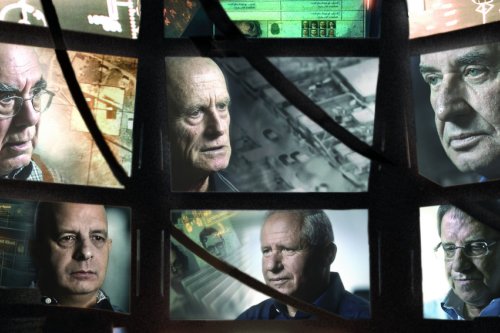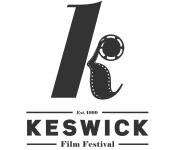Reviews - The Gatekeepers
The Gatekeepers
Reviewed By John Porter

The Gatekeepers
Political documentaries are rarely a simple experience, especially in arenas where the code of conduct is drawn up around cloaks, daggers, and varying shades of repression. Dror Moreh's 'The Gatekeepers' ventures into the Middle East, and more specifically, Israel's Shin Bet security force, of which it promises interviews with six of it's former heads. What sets this film apart from much of the information which is released around it's subject matter is precisely this: The attraction of seeing tight-lipped men speak out for the first time about their experiences within a covert organisation. The movie does not attempt to be a Wikileaks style expose, and so instead achieves a complex portrayal of the position of a modern intelligence force working in one of the most turbulent areas on the planet. More subversively, it creates an impression of what effect this has upon the officials giving the orders.
The movie opens on an image of shifting smoke, soon revealed to be cloud shot through the tinged lens of a surveillance camera. The cloud parts to show us the distant explosion of an unidentified vehicle tracing its course through city streets while a voiceover muses over the morality involved: If you are to blow up a car to kill your terrorist target before he reaches his destination, yet there may also be two innocent people in the back, what do you do? "There are no black and white answers", a seated, ordinary looking man tells us. However this is a man who has to make a decision. In a world where there are no easy options, the overarching impression of this documentary is that of political confusion, and of a veiled righteousness gradually coming to question it's own ethics.
Moreh achieves this sense of background confusion through repetition of a visual theme. Intermittently we see aisle after aisle of filing cabinets, walls of surveillance screens, racks of suspect photographs labelled in Hebrew and thumbed back and forth on files, and in one particularly effective shot, expanding CGI lattices of connections between insurgency fighters. These images work on multiple levels. There is obviously much information on suspected rebels, but where do the security services start in deciphering it? There also seems to be a hint here that there is much documentation behind closed doors, but how much is Moreh able, or willing, to use? Then thirdly, and more directly for the viewer, these shots give a sense of ignorance before such bottomless secrets and history, and so a helplessness to come to any straightforward conclusion about what we hear and see.
The movie's intentional confounding of it’s audience in this way does not make it an easy watch, and Moreh does not stop here in placing the viewer within an uncomfortable space. The six men candidly explain their thoughts on terror attacks, describe good operations, which are, "clean and tidy", and bad ones, wherein civilians die. Although both kinds of manoeuvers are described with the same practical and collected speech, it is not altogether ruthless, one member of Shin Bet remarking that to a Palestinian, he would be the terrorist, and another joking that that upon leaving the organisation it was easy to become, "a Lefty". These are men who are confident in their position, seemingly above jurisdiction, and Moreh presents them as such: He cuts sharply from intense sound in news reports to the silence of his subjects, so separating the two. The film here succeeds in placing the figureheads on a different level from the public face of the conflict. Moreh reiterates this throughout, photographing his subjects disconnected from their blurred backgrounds in shallow focus, further distancing them from any surroundings, and so gives them an elevated, vaguely mythical position, sitting strangely at odds with their ordinary appearances and dress. With the knowledge of their former actions, this normality is chilling.
Unsurprisingly for a documentary examining an issue with such a tangled wealth of conspiracy behind it, some prior knowledge is assumed, yet the movie never depends on this to achieve it's power. CGI reconstructions which place historical photographs within their contexts force the audience to consider a wider scope of incidents, such as during a hostage situation on a bus, the details of which are only ever partially explained, and then by multiple voices. The muddiness of half-concealed facts and lies give an impression of a habit of secrecy within the memories we are hearing, and the movie uses this to create an intrigue without ever really revealing anything new.
As 'The Gatekeepers' gathers momentum, more and more focus is drawn towards these six men; men that have carried out actions which often came down to the simplicity of, "pressing a button", to trigger a governmentally authorised killing. In this respect the film shows us a very specific and emotive point of view, but one whose source is so rare that it feels like a curiosity, even with the weight of the topic. Gathering these obviously secretive people to talk about their experiences, whether candidly or guardedly, is not the singular attraction of 'The Gatekeepers' however, but the catalyst for something much more complicated.
The idea of peace after so many years of violence is referred to somewhat wistfully by the ageing spies. "Talking to everybody", says one, "is the only way forward", which comes almost desperately, perhaps a man repenting for past sins in the shadowy realms between the military and the political, realms where, ironically, silence and control of speech was of the utmost concern. "I was told that there was a man behind a door at the end of a corridor on the second floor making decisions", says another, before recounting how later in life he found the corridor but not the decision maker. Although the interviewees are never sympathetic figures, the viewer is forced to reassess their cool facades as masks, behind which are merely men making the most terrible of choices in a world where the 'grand scheme' is nothing but a fable.
The movie opens on an image of shifting smoke, soon revealed to be cloud shot through the tinged lens of a surveillance camera. The cloud parts to show us the distant explosion of an unidentified vehicle tracing its course through city streets while a voiceover muses over the morality involved: If you are to blow up a car to kill your terrorist target before he reaches his destination, yet there may also be two innocent people in the back, what do you do? "There are no black and white answers", a seated, ordinary looking man tells us. However this is a man who has to make a decision. In a world where there are no easy options, the overarching impression of this documentary is that of political confusion, and of a veiled righteousness gradually coming to question it's own ethics.
Moreh achieves this sense of background confusion through repetition of a visual theme. Intermittently we see aisle after aisle of filing cabinets, walls of surveillance screens, racks of suspect photographs labelled in Hebrew and thumbed back and forth on files, and in one particularly effective shot, expanding CGI lattices of connections between insurgency fighters. These images work on multiple levels. There is obviously much information on suspected rebels, but where do the security services start in deciphering it? There also seems to be a hint here that there is much documentation behind closed doors, but how much is Moreh able, or willing, to use? Then thirdly, and more directly for the viewer, these shots give a sense of ignorance before such bottomless secrets and history, and so a helplessness to come to any straightforward conclusion about what we hear and see.
The movie's intentional confounding of it’s audience in this way does not make it an easy watch, and Moreh does not stop here in placing the viewer within an uncomfortable space. The six men candidly explain their thoughts on terror attacks, describe good operations, which are, "clean and tidy", and bad ones, wherein civilians die. Although both kinds of manoeuvers are described with the same practical and collected speech, it is not altogether ruthless, one member of Shin Bet remarking that to a Palestinian, he would be the terrorist, and another joking that that upon leaving the organisation it was easy to become, "a Lefty". These are men who are confident in their position, seemingly above jurisdiction, and Moreh presents them as such: He cuts sharply from intense sound in news reports to the silence of his subjects, so separating the two. The film here succeeds in placing the figureheads on a different level from the public face of the conflict. Moreh reiterates this throughout, photographing his subjects disconnected from their blurred backgrounds in shallow focus, further distancing them from any surroundings, and so gives them an elevated, vaguely mythical position, sitting strangely at odds with their ordinary appearances and dress. With the knowledge of their former actions, this normality is chilling.
Unsurprisingly for a documentary examining an issue with such a tangled wealth of conspiracy behind it, some prior knowledge is assumed, yet the movie never depends on this to achieve it's power. CGI reconstructions which place historical photographs within their contexts force the audience to consider a wider scope of incidents, such as during a hostage situation on a bus, the details of which are only ever partially explained, and then by multiple voices. The muddiness of half-concealed facts and lies give an impression of a habit of secrecy within the memories we are hearing, and the movie uses this to create an intrigue without ever really revealing anything new.
As 'The Gatekeepers' gathers momentum, more and more focus is drawn towards these six men; men that have carried out actions which often came down to the simplicity of, "pressing a button", to trigger a governmentally authorised killing. In this respect the film shows us a very specific and emotive point of view, but one whose source is so rare that it feels like a curiosity, even with the weight of the topic. Gathering these obviously secretive people to talk about their experiences, whether candidly or guardedly, is not the singular attraction of 'The Gatekeepers' however, but the catalyst for something much more complicated.
The idea of peace after so many years of violence is referred to somewhat wistfully by the ageing spies. "Talking to everybody", says one, "is the only way forward", which comes almost desperately, perhaps a man repenting for past sins in the shadowy realms between the military and the political, realms where, ironically, silence and control of speech was of the utmost concern. "I was told that there was a man behind a door at the end of a corridor on the second floor making decisions", says another, before recounting how later in life he found the corridor but not the decision maker. Although the interviewees are never sympathetic figures, the viewer is forced to reassess their cool facades as masks, behind which are merely men making the most terrible of choices in a world where the 'grand scheme' is nothing but a fable.
Find A Film
Search over 1500 films in the Keswick Film Club archive.
Friends
KFC is friends with Caldbeck Area Film Society and Brampton Film Club and members share benefits across all organisations
Awards
Keswick Film Club won the Best New Film Society at the British Federation Of Film Societies awards in 2000.
Since then, the club has won Film Society Of The Year and awards for Best Programme four times and Best Website twice.
We have also received numerous Distinctions and Commendations in categories including marketing, programming and website.
 Talking Pictures
The KFC Newsletter
Talking Pictures
The KFC Newsletter
Links Explore the internet with Keswick Film Club


